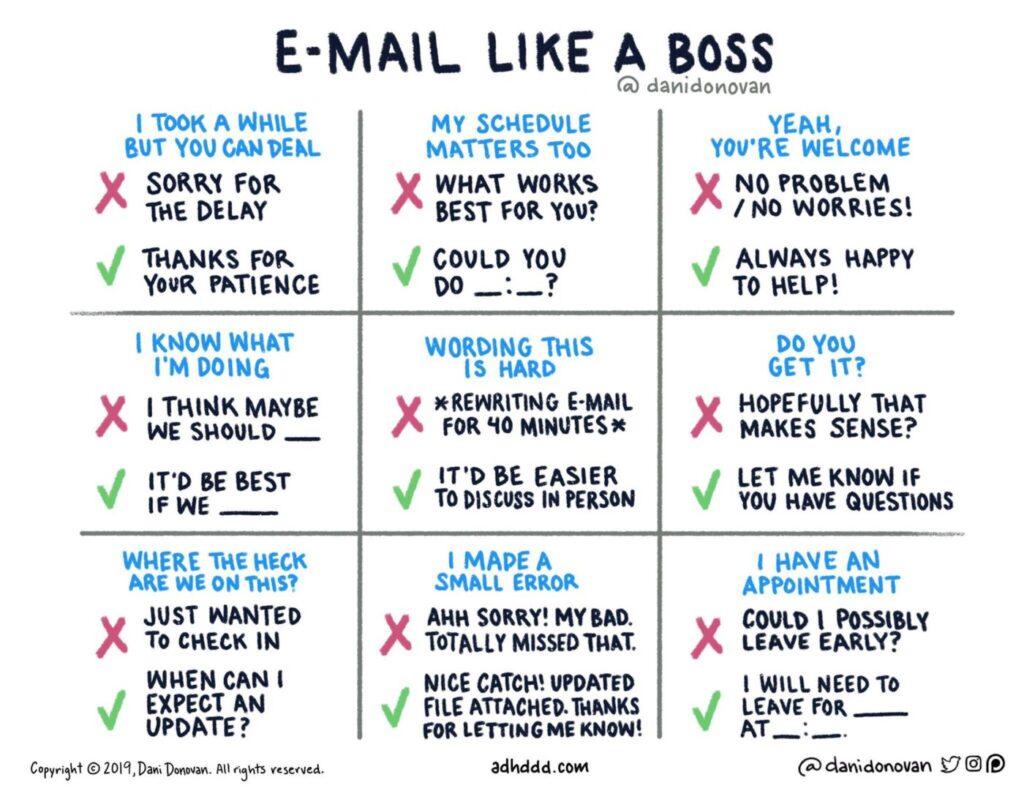Communication skills for workplace success
Being able to communicate effectively and professional with managers, colleagues, and subordinates is essential in any job. All workers need to be able to understand and convey messages in person as well as through email and on phone calls.
Strong communication skills will help you ace interviews, get promotions, save time by avoiding meetings going over the same message more than once, and build your network.
The top communication skills
The following skills should be used throughout your career, from your initial application to join an organisation to moving you way up inside the company, and all the time in between.
Listening
Being a good listener is critical to communicating well.
All too often people ‘listen’ by thinking about their reply or waiting to share their opinion. If you’re not listening properly, it’s difficult to fully grasp what you’re being asked to do which can lead to mistakes.
“The biggest communication problem is we do not listen to understand. We listen to reply.”
Stephen Covey
Instead, practice active listening. Active listening means paying close attention to what the other person is saying, asking clarifying questions, and rephrasing what they said to ensure you understand. If you fully understand what the other person is trying to communicate, you can respond appropriately.
Nonverbal communciation
Your body language, eye contact, hand gestures, and tone of voice all add to the message you’re trying to communicate.
Having a relaxed and open stance, a friendly tone and a smile will make you seem more approachable and easy to talk to. Keeping eye contact shows you are focused on what they’re saying and it makes you appear confident and truthful when you’re talking. However, be mindful not to stare at the other person as this could make them uncomfortable.
Clarity and concision
Say what you want clearly and directly, don’t say too much by waffling or too little by being vague. The listener will either zone out or be unclear what you want.
If you’re trying to communicate a difficult concept use an analogy or compare the new concept to a familiar one to make your point clearer.
If you’re communicating with a very busy person be clear on the reason why you’re communicating with them and what you need from them. If you’re communicating with them via email, it’s likely your message can be put into a few short bullet points rather than long paragraphs.
Friendliness
Being kind and polite in all of your workplace communications is really important for being professional. Talk with a friendly tone and a smile, and show interest in what the other person is saying.
If you’re having a conversation about life outside of work it’s nice to remember any names they say and ask about how they’re doing in the future. People love hearing the names of their loved ones and it shows you were listening.
Confidence
Be confident when communicating with others. Confidence will show your colleagues that you believe in yourself in your abilities which will build trust.
Confidence can be show with eye contact, standing upright, a firm but friendly tone and by avoiding making statements into questions. However, take care to listen to and empathise with the other person so that you don’t come across as rude.
Learn how to be assertive and confident but still polite and professional when emailing co-workers below:

Open-mindedness
To be a good communicator you need to keep a flexible, open mind. Don’t identify yourself with and be stuck in your thoughts and opinions, be open to listening and understanding the other person’s point of view.
Even if you disagree with someone, you will have more productive conversations and often you will still learn something.
Respect
Colleagues will be more comfortable sharing ideas and collaborating with you if you show respect for them. Simply using their name, keeping eye contact, thanking them, and building on their idea rather than bulldozing it will make them feel respected.
Additionally, staying focused on the verbal conversation or taking the time to check through your written email for typos and clarity will show them that you’re making time to hear them out.
Feedback
Learning how to give positive AND constructive negative feedback is a vital communication skill, for managers especially. Thank people for a job well done and why you appreciate it, and be polite when giving people critiques on their work.
You should also accept and seek feedback on your own work and most importantly, show that you’ve taken it onboard.
Picking the right medium
People are grateful to receive the right means of communication, it’s a big time saver and you’re likely to get a more appropriate response.
If it’s a serious conversation such as a change in salary or resignation it should be done in person or a virtual meeting. If it’s an important message, email could be best so they can refer back to it later. If it’s a quick question or comment then your company instant messaging platform such as Slack may be most appropriate.




